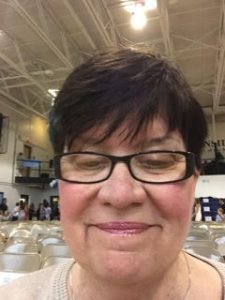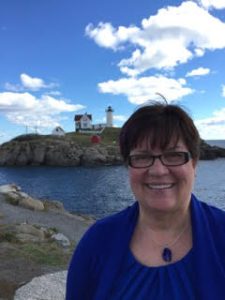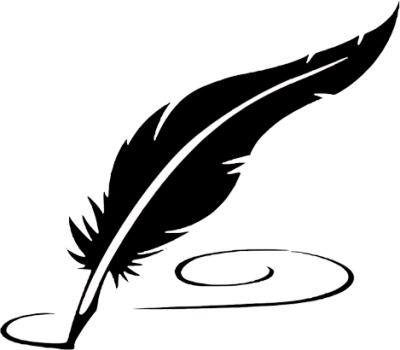Statement on Poetry
by Carol Bachofner
I’ve been “writing things down” for a very long time. In fact I don’t recall when I didn’t. Because of the fact that I write things down, words are important to me. When I write poems, I am acutely aware that words are the framework for what I am thinking, for what I want to convey to others. I often tell the members of my poetry group that every word is powerful, every phrase is a chance to let another person in to that place you inhabit. I write that way. Every time I sit down to write is a chance to let someone else in.
My children have long said that I speak metaphorically (this is not always a positive comment of theirs). I think I speak metaphorically is because I see the world as a whirl of phrases that up the ante on how we experience our lives. Why say “I feel great today” when I can say Every cell of my body is awake and cheering or why give a one word expression when a phrase richly packed with color and smells and sounds?
My poetry has emerged, evolved, and revolved over time, from the once formal, and only formal, expressions to free verse, back to formal-based, and of late experimental formats. I once decried the notion and existence of prose poems for example. I now find they are a huge part of my writing. As a storyteller, how could I not embrace this way of putting story on the page? But in all of the varied methods of writing I employ, there is one constant: observation of detail combines with a willingness to share.
I like to think of myself as a fairly good observer of details. I want to give my readers those details, and in a memorable way. The truth is that I am in love with this world of ours. I find it full of textures and nuance. I was looking at a tiny blue jay feather the other day and became absorbed by the delicacy of the shape, the colors (really, have I EVER seen such a blue?) How can I not want to share my observation? But more than a mere reporter of details, I think of myself as a translator of meanings shown to me in the details of what I am seeing, hearing, smelling, touching. This is where metaphor enters and takes a seat next to me as I write. Was this developed as a result of all the dot-to-dot books I filled in as a child? I don’t know if that had anything to do with the intricate connections I see and express in my writing. I just know that my whole life, my whole writing life, has been about the connectedness in the world.
 As an indigenous woman, an Abenaki woman, this connectedness is natural. It is the relaxed state of normal for me. I have a sense of being part of something bigger than just me, particularly hen I read the poems of other indigenous writers. I often find my skin tingling as a phrase or line sparks a long memory. Often, I experience something even more visceral like a smell or a sound. It is a series of hidden messages from generations of women before me and I am lucky enough to have it right before me. I feel as if I am part of a chain of messengers. I feel a sense of duty to pass the messages along. I would be remiss if I failed to mention the dark. Not all experiences and not all messages are the brilliant blues of jay feathers. Look carefully at any part of the natural world and you will find deep sad colors as well as bright. If I am to be authentic in my writing I have to be willing to share the sorrow as well. The responsibility I feel is strong.
As an indigenous woman, an Abenaki woman, this connectedness is natural. It is the relaxed state of normal for me. I have a sense of being part of something bigger than just me, particularly hen I read the poems of other indigenous writers. I often find my skin tingling as a phrase or line sparks a long memory. Often, I experience something even more visceral like a smell or a sound. It is a series of hidden messages from generations of women before me and I am lucky enough to have it right before me. I feel as if I am part of a chain of messengers. I feel a sense of duty to pass the messages along. I would be remiss if I failed to mention the dark. Not all experiences and not all messages are the brilliant blues of jay feathers. Look carefully at any part of the natural world and you will find deep sad colors as well as bright. If I am to be authentic in my writing I have to be willing to share the sorrow as well. The responsibility I feel is strong.
Aln8baiwi, In the Abenaki Manner
We turn to the sea, feel the tide pulling,
see something coming. We turn our hands in the earth
to the corn growing greener day by day,
spending time with her sisters, ready to feed us.
In our manner, Alnôbaiwi, it is best to sleep with the head
in the east, making it easy to see the coming sun.
In our way, we are always facing something,
seeing what others don’t see coming.
Bee Molasses — 8mwaimelases
All summer, bees hovered
inside the honeysuckle (bigw8ganizal —
little whistles to the Abenaki) for pollen
to feed the queen, to make bee molasses
for this morning’s sacred breakfast.
It is the day that has turned
another calendar
a new mirror, a fresh snow,
a fish running
to spawn another generation,
a frog dreaming beneath river ice.
It is the day of sacred thoughts, of promises,
day of forgiveness: Anhaldamawadin.
Some of us sleep, never feel the changes,
some keep eyes on everything,
ask: what is my part?
Land Sickness
I’m flung away, flung far from the edges
of ocean, beneath brown, unsettled skies;
I have no salt spray for my hair, no chill
gray sand beneath my feet. I am bereft
of crisp ocean kisses and wild seaweed,
dancing like a sultry lover around my ankles.
Perhaps I will die from land sickness, this
never-ending orphanage from Maine’s shore.
Soon they will find my body, petrified and blue
in a corner of the desert, eyes squeezed shut
against fetid breeze and fiery desert sky.
In one tight fist will they find a single drop
of salt, a tear that began in the surf at home.
Living On, prose sonnet
1. From a waterfall 12 feet straight down, into 2 feet of water 2. Swept off like leaves ready to die. 3. Never thought about death then. Never thought about life then. All the same to me. 4. Carried to safety by Paiute man, a slung sack on his back. Now a piece of him, he’s me too just that way. How I think of it: carry me, I carry you. 5. The tee shirt you took off your back I wear like you wore me. American Indian Dance Theater. 6. I dance. I sway and stomp like the wind trees or the river that caught me. 7. Live on or die. 8. Be Indian. Be not Indian. You don’t get to decide. 9. If you break a bone, pray for all other bones. You will heal 4 people that way. 10. One of them will heal you. 11. The river didn’t want to feel so empty that day. 12. Wanted to fill itself with something that needed healing. 13. Indian Canyon ceremony, sweat running like the river. 14. Grandmothers and Grandfathers yielding to fire. Me — natal, naked, and ready to live on.
Naming Water
Gwantigok, Penobscot,
Passamaquoddy, Pashipakokee,
long rivers, long through the land you flow
long through us will you flow,
flowing from where the rocks widen,
from where pollack feed us.
Piscataqua, Androscoggin, Cobbosseecontee,
Olamantegok, Quahog,
where water lies between the hills
through the sheltering place,
to where sturgeon gather together
to red ochre river, color of our children.
Shellfish place, treaty-making place.
Sebastivcook, Seninebik,
Skowhegan, Baskahegan,
our stories flow
through little channels,
bearing rocks and memories
from where salmon leap the falls
to broad open waters,
turning back to where wild onions grow,
With birch and ash along their backs,
long rivers of first light
through our families flowing:
Wazwtegok, Winoztegok,
Zawakwtegw, Gwantigok.: Ndakinna.
Origin
Everything started over water:
bows, arrows, winds gathering, pulling
primal ocean into the air, sending
it back in swirls, funnels, swells. At first
nothing but water, and over water, air.
Blue air filled with people. Over water,
a hole in the clouds and a woman
looking through, dreaming and falling.
Abenaki Bones
(a reflection on the failure of King Phillip’s War, 1678)
Our bones fled north,
paddled icy waters, carried
stories and songs to Odanak
across the Ouelle River.
Bones from Pennacook
from Norridgewock and Ossipee
from Saco and Kennebec,
bones running through night.
Our bones scattered
in bloody fields
in sad forests
far from winter camp.
The enemy believed
our bones ruined,
cut down like corn
burned to meal and ash
Abenaki bones are strong,
grow new skin and flesh,
live in safety, leaning together
around old stories, in new camps.
Waz8liskik
There’s a little snow on the ground
and more on the way. I welcome it
and bring some inside to boil for tea.
I watch birds use it for bathing, fluffing
themselves without a single thought of freezing.
There’s a little snow today and tomorrow
and then it will be spring. That’s how it works.
So many people try to get away from snow
that there are fewer and fewer footprints
in it, fewer and fewer pots of snow tea.
Wazôliinebi
Snow is water
that feeds us without walking
to the stream. Beboniwi, in the winter way,
snow lets us rest from the work we do,
from pulling corn and tomatoes
and canning squash that grew like hair
nourished by wazôliinebi
while we watched over them.
We turn in bed and listen to snow
whispering about corn.
Winter Bringing Moon Bebonkas
Full cold moon, white eye long
over the horizon, small heat over a cold sea,
moon before yule, gift of the maker
to lead us to winter camp, burn slow
and steady to keep company
with the ancestors. Long night moon,
bring stories, gleaming tooth
in the dark mouth, agamokawi, teach me. Bring
fire that will not burn away as we sleep,
facing east, facing what is coming.
 Carol W. Bachofner, poet of Abenaki and Scottish lineage, is the current Poet Laureate of Rockland, Maine, serving her second term. She is also in her second term as president of Maine Poets Society. Her poems have appeared in Prairie Schooner, The Comstock Review, The Connecticut Review, Crab Orchard Review, The Cream City Review, and others. Her most recent collection, Native Moons, Native Days, was published by Bowman Books in 2012. Her poetry has been featured in the following anthologies: Take Heart, Poems From Maine; Unraveling the Spreading Cloth of Time: Indigenous Thoughts Concerning the Universe; and Dawnland Voices, an anthology of writings from Indigenous New England (2014). Her poems cover a wide range of forms such as pantoum, vilanelle, unfixed forms, and sonnet (including prose sonnets). Her recent focus on the prose poem has sent her writing in new and exciting directions.
Carol W. Bachofner, poet of Abenaki and Scottish lineage, is the current Poet Laureate of Rockland, Maine, serving her second term. She is also in her second term as president of Maine Poets Society. Her poems have appeared in Prairie Schooner, The Comstock Review, The Connecticut Review, Crab Orchard Review, The Cream City Review, and others. Her most recent collection, Native Moons, Native Days, was published by Bowman Books in 2012. Her poetry has been featured in the following anthologies: Take Heart, Poems From Maine; Unraveling the Spreading Cloth of Time: Indigenous Thoughts Concerning the Universe; and Dawnland Voices, an anthology of writings from Indigenous New England (2014). Her poems cover a wide range of forms such as pantoum, vilanelle, unfixed forms, and sonnet (including prose sonnets). Her recent focus on the prose poem has sent her writing in new and exciting directions.
Carol’s poems have been “danced” and used in musical compositions. She has enjoyed having ekphrastic poems included in art openings, and read into the permanent oral history of Andrew Wyeth at the Farnsworth Art Museum. She is currently at work on a book project: a conversation with the poems of Richard Wilbur, whom she views as the greatest living American poet.
